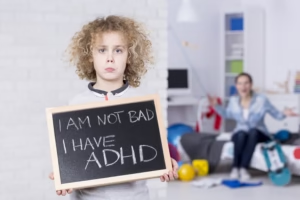In the previous articles, I explored what borderline personality disorder (BPD) is and the importance of understanding its symptoms. Let’s transition to something more exciting and functional: what borderline personality disorder treatments can assist people with BPD symptoms and what important concepts to look out for.
It’s critical to reiterate the point that a mental health diagnosis holds nearly no predictive value. It doesn’t show how your recovery process would look like, unlike physical illness. The journey for you will look differently; as a result, don’t hold any mental illness too close where it defines you. It’s a label that groups a bunch of symptoms together with no scientific weight to it.
Three Major Therapeutic Approaches for BPD
Let’s dive into the three major borderline personality disorder treatments tailored to this diagnosis:
1. Acceptance & Commitment Therapy (ACT)
A new process-based approach—a modality that goes beyond diagnosis and symptoms—has received a lot of recognition as one of the most effective borderline personality disorder treatments. Researchers found they reduce the symptoms significantly.
ACT focuses on psychological flexibility, helping individuals:
- Accept their thoughts and feelings
- Commit to actions that align with their values
This approach can be particularly beneficial for those with BPD who struggle with emotional regulation and impulsivity.
2. Dialectical Behavior Therapy(DBT)
Dr. Marsha Linehan created DBT to specifically serve the BPD population. This borderline personality disorder treatment approach is more intensive and requires a large team of clinicians. It entails psychoeducational group counseling, coupled with individual counseling.
DBT teaches four key skills:
- Mindfulness: Being present in the moment
- Distress tolerance: Coping with crisis situations
- Emotion regulation: Managing intense emotions
- Interpersonal effectiveness: Improving relationships with others
These skills help individuals with BPD navigate their emotional landscape and improve their relationships, addressing core symptoms of the disorder.
3. Process-based Cognitive-Behavioral Therapy(PCBT)
I’m certain you have heard the term CBT many times before. They called it the “golden standard.” I believe the studies conducted on CBT are flawed, poorly designed studies with a lack of validity and reliability. Studies also show that CBT is losing its effectiveness.
This brings us to a new type of CBT, called process-based. It shares many characteristics with ACT—mainly the emphasis on behavioral aspect rather than cognitive one. PCBT focuses on underlying processes that maintain psychological difficulties, rather than targeting specific symptoms or disorders.

Beyond Symptom Reduction
Despite the effectiveness of these therapeutic approaches, it’s critical to know that no longer meeting a diagnosis doesn’t equate to living a life worth living. Throughout my years as a clinician, I see countless people feel happy and great, but go through life mindlessly. That’s a ticking time bomb right there because emotions, both negative and positive ones, are fleeting.
Counseling is beyond the diagnosis. It’s about your values and what you want to accomplish in your life. To get to that point, working on how you approach your thoughts and feelings is the first step.
Personalizing Borderline Personality Disorder Treatments
When considering borderline personality disorder treatments, it’s important to remember that one size doesn’t fit all. What works for one person may not work for another. That’s why a personalized approach is crucial. Some individuals might benefit from a combination of these treatments, while others might find one approach particularly effective.
It’s like finding the right key for a lock – you might need to try a few before you find the perfect fit. But once you do, it can unlock a world of possibilities for managing BPD symptoms and improving your quality of life.
The Importance of the Therapeutic Relationship
Another critical aspect of borderline personality disorder treatments is the therapeutic relationship. The bond between the therapist and the client can be a powerful tool in the healing process. This is particularly important for individuals with BPD, who often struggle with interpersonal relationships. A strong, trusting therapeutic relationship can provide a safe space for exploring emotions, practice new skills, and work through challenges.

Comprehensive Treatment Approaches
It’s also worth noting that borderline personality disorder treatments often involve more than just therapy sessions. Many treatment plans include:
- Medication management: While there’s no specific medication for BPD, certain symptoms, like depression or anxiety, might be managed with medication.
- Group therapy: This can provide a supportive environment and opportunities to practice interpersonal skills.
- Family therapy: Involving loved ones in the treatment process can improve relationships and create a supportive home environment.
- Self-help strategies: Learning to cope mechanisms and self-care techniques to manage symptoms outside of therapy sessions.
Remember, seeking help is a sign of strength, not weakness. If you’re considering borderline personality disorder treatments, you’re taking a brave step towards improving your life. The journey might be challenging, but with the right support and treatment approach, it’s possible to manage BPD symptoms effectively and build a life that aligns with your values and aspirations.




